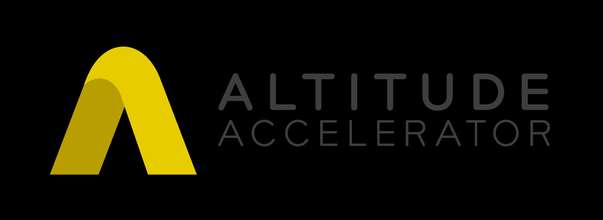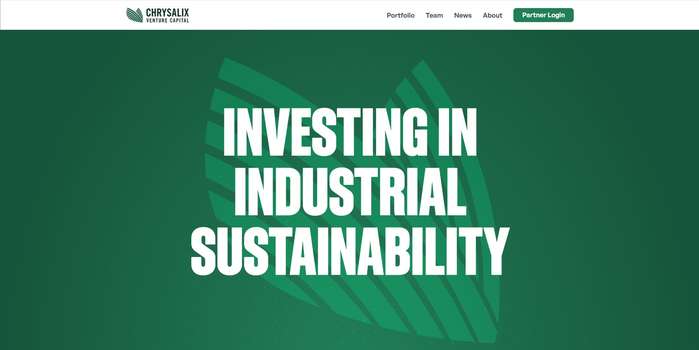A Guide to NRC’s Clean Energy Programs: Unlocking Opportunities for Cleantech Innovation
by Mehr Sokhanda
Early stage cleantech founders are often challenged in market-ready solutions because of the costs associated with testing and access to lab facilities. The National Research Council helps companies alleviate hurdles and supports companies to turn promising lab findings into practical, real-world solutions.
The National Research Council (NRC) helps early-stage founders through their Clean Energy Innovation Program. This program supports founders from the Proof-of-Concept stage to Technology Readiness Level 5 (TRL 5). The NRC’s support allows testing in settings that closely match actual market conditions. This aid helps speed up the growth and sale of new clean energy tech. By focusing on this key step, the NRC boosts progress in this important field. By tapping into the NRC’s resources, founders could save time and money while increasing their chances of success. Understanding these opportunities is key to advancing one’s innovations and contributing to Canada’s clean energy future.
The National Research Council (NRC) of Canada is a leader in advancing technology that supports sustainable development. Their Clean Energy Innovation (CEI) program is designed to accelerate Canada’s transition to a net-zero economy by fostering clean energy development and industrial decarbonization. The program leverages scientific capabilities, cutting-edge technologies, and strategic partnerships to develop solutions in areas such as net-zero energy, critical minerals, advanced materials, and industrial decarbonization. With 226 researchers, engineers, and experts , the CEI program is well-equipped to drive significant advancements in clean energy technologies.
CEI Programs:
The Clean Energy Innovation program focuses on several key areas to address Canada’s clean energy transition.
- Fuel switching
- Electrification
- Hydrogen
- Carbon management
In the near term, the program aims to enable fuel switching by using negative-value waste streams for fuel production. This involves waste material characterization and waste-to-fuel conversion processes. The program explores both biochemical processes and thermochemical processes. These efforts aim to increase market opportunities for technology developers while reducing energy costs for end-users.
Next, the electrification component of the program covers a broad spectrum of technologies. It works on developing more electric aircraft and hybrid propulsion systems, advancing cleaner aviation. In battery technology, the program addresses areas such as battery energy storage technologies for stationary and motive applications, supports battery supply chains, conducts microgrid component testing and integration, and explores critical minerals recovery and processing. It also supports the development of low-cost electric motors, striving to make clean transportation more accessible.
Canada is regarded “as one of the top 10 global producers of hydrogen today and is well-placed to transition to clean-hydrogen production and become a major clean-hydrogen exporter.” The Government of Canada’s introduction of their hydrogen strategy in 2020 helped assert this position. The hydrogen pillar focuses on clean hydrogen production, distribution, storage, and utilization . It also focuses on system integration and utilization, providing crucial support for decision-making through lifecycle and techno-economic analyses.
Lastly, in the field of carbon management , the program works on CO2 conversion to fuels and chemicals, CO2 mineralization, and CO2 transportation and sensing. These efforts will significantly impact fuel production, carbon management, and hydrogen technologies.
Overall, these programs are structured to address both near-term and long-term goals, with projects ranging from low to high Technology Readiness Levels (TRL). This approach ensures that the CEI program can support innovations at various stages of development, from early-stage research to near-market solutions.
Mississauga Advanced Materials Facility
The NRC operates six research facilities across Canada: three in Ontario, two in Quebec, and one in British Columbia.
One of these facilities, the Mississauga Advanced Materials Facility, plays a key role in supporting cleantech innovation. The center serves as an innovation hub and catalyst for accelerating material discovery and development through cutting-edge technology and multifaceted collaborations.
The Mississauga facility houses Materials Acceleration Platforms, a high-performance computing and AI/ML studio, and a mechatronics lab. It also provides advanced materials testing, large-scale powder production, and the ability to shape and enhance materials. Design, simulation, and digital fabrication are also key components of the facility’s offerings.
The team at the Mississauga facility possesses a wide range of competencies. They excel in materials discovery, synthesis, and production, as well as functional materials and components design and manufacturing. The team is also skilled in integration, validation, and testing, along with mechatronics, design, and automation. Their expertise also extends to AI/ML and software development. These capabilities make the Mississauga Advanced Materials Facility a significant resource for clean tech startups. The facility can support entrepreneurs in various ways, starting with accelerated materials discovery. Using self-driving laboratories and AI-guided process optimization, startups can speed up their material development processes. The facility’s electrocatalysis research capabilities offer end-to-end development for materials related to hydrogen production, CO2 reduction, and carbon capture.
For startups working on battery technologies, the facility’s research on Li-ion cathode materials and battery recycling can be invaluable. The powder synthesis and modification capabilities can support startups working on carbon management, electrification, and critical minerals. Additionally, the facility’s expertise in smart materials development, using advanced design and 3D printing techniques, can help startups create innovative materials for batteries, hydrogen and CO2 electrolyzers, and CO2 capture.
By leveraging these resources, clean tech startups can significantly accelerate their product development cycles and improve their chances of success in the market.
Supporting Clean Tech Startups
The Clean Energy Innovation program offers various avenues of support for startups and SMEs focused on developing clean energy technologies. This initiative, aligned with the NRC’s commitment to sustainability, offers a range of valuable resources. Firms gain access to their research facilities, benefit from the knowledge of industry experts, and have opportunities for collaboration. By tailoring its support to the unique needs of emerging companies in the clean energy sector, the CEI program aims to foster innovation and accelerate the development of sustainable energy solutions.
Qualification Criteria:
In order to qualify for access to these resources, startups need to demonstrate innovative clean energy solutions that are both technically sound and commercially viable, aligning with the NRC’s goals for decarbonization, and are often expected to collaborate with industry or research partners, enhancing their potential for success and broader impact.
The National Research Council’s Clean Energy Innovation program represents a significant opportunity for clean tech startups in Canada. By providing access to world-class research facilities, expertise, and collaborative networks, the CEI program is helping to accelerate the development and commercialization of clean technologies.
For startups looking to take their clean tech innovations to the next level, the CEI program offers a valuable pathway to access resources and support. The program’s focus on key areas such as carbon management, fuel switching, electrification, and hydrogen aligns well with the most pressing needs in the clean energy transition. For more information about the NRC Clean Energy Innovation Program, contact us .
At Altitude Accelerator, we share a deep commitment to fostering cleantech innovation. If you’re a clean tech founder or entrepreneur looking for additional resources and support, you can visit our page at https://altitudeaccelerator.ca/cleantech-at-altitude-accelerator/ to learn more about how we can assist you in your clean tech journey.
The post A Guide to NRC’s Clean Energy Programs: Unlocking Opportunities for Cleantech Innovation appeared first on Altitude Accelerator .
Full content in Altitude Accelerator





